Embark on an immersive journey through Fort Collins’ storied past as you uncover its pivotal role in the Indian Wars and westward expansion. Once known as Camp Collins, this strategic military outpost played a vital part in securing the frontier, with soldiers patrolling the rugged terrain and facilitating the safe passage of pioneers. Today, you’ll have the chance to explore the historic artifacts that bring this captivating chapter to life, while also basking in the serene beauty of the Cache la Poudre River. Join us as we unveil the triumphs and trials that shaped the early development of this remarkable city.
Key Points
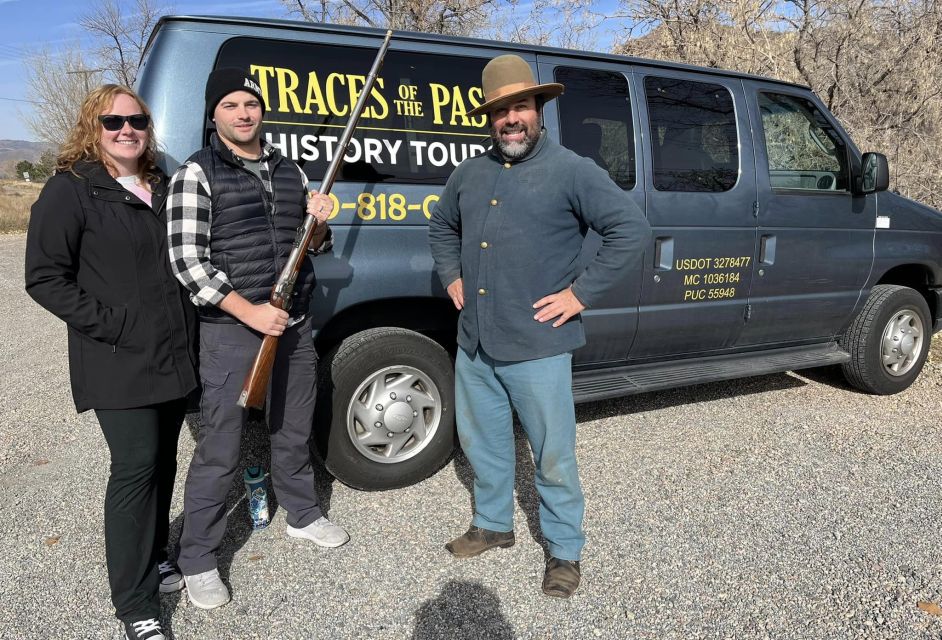
- Explore the historic role of Camp Collins as a strategic military hub during the Indian Wars and westward migration in the Cache la Poudre River Valley.
- Discover the harsh realities and camaraderie of frontier life experienced by the soldiers stationed at the remote outpost of Camp Collins.
- Understand how Camp Collins facilitated the safe passage of pioneers and served as a hub for the influx of westward-bound travelers.
- Examine the preserved mid-nineteenth century artifacts on display, offering a tangible connection to the trials and triumphs of frontier life.
- Enjoy the serene natural beauty of the Cache la Poudre River, spotting local wildlife and admiring the lush greenery.
The Military’s Role
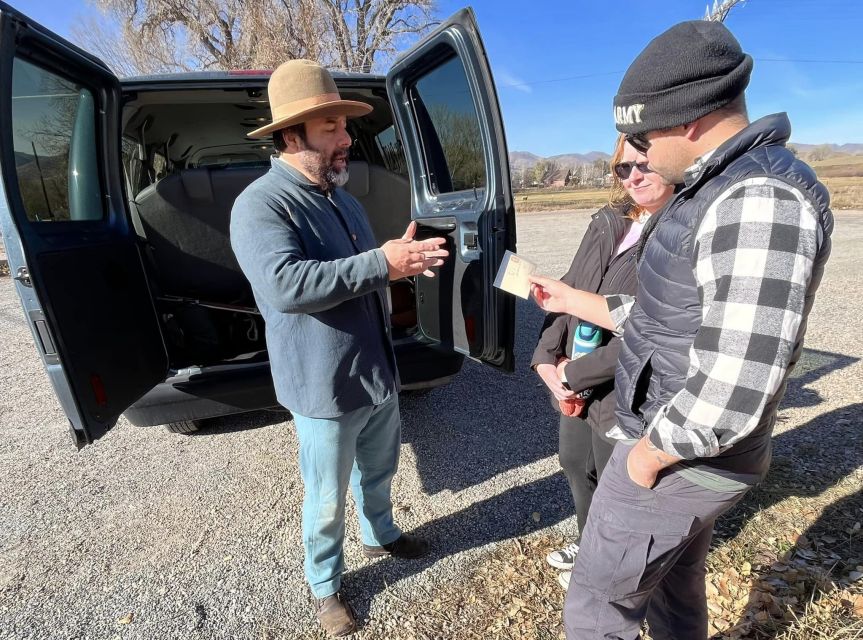
The military’s presence in the Cache la Poudre River valley played a pivotal role in the Indian Wars and the westward migration movement, shaping the early development of the region.
The remote outpost of Camp Collins, established in 1862, served as a strategic hub for the U.S. Army’s operations against Native American tribes and provided protection for the growing number of settlers moving westward. From this frontier post, soldiers patrolled the surrounding area, engaging in skirmishes with indigenous groups and facilitating the safe passage of pioneers.
The camp’s eventual transition into the town of Fort Collins further cemented the military’s lasting influence on the region’s history and transformation into a thriving community.
You can also read our reviews of more tours and experiences in Fort Collins.
Life on the Frontier
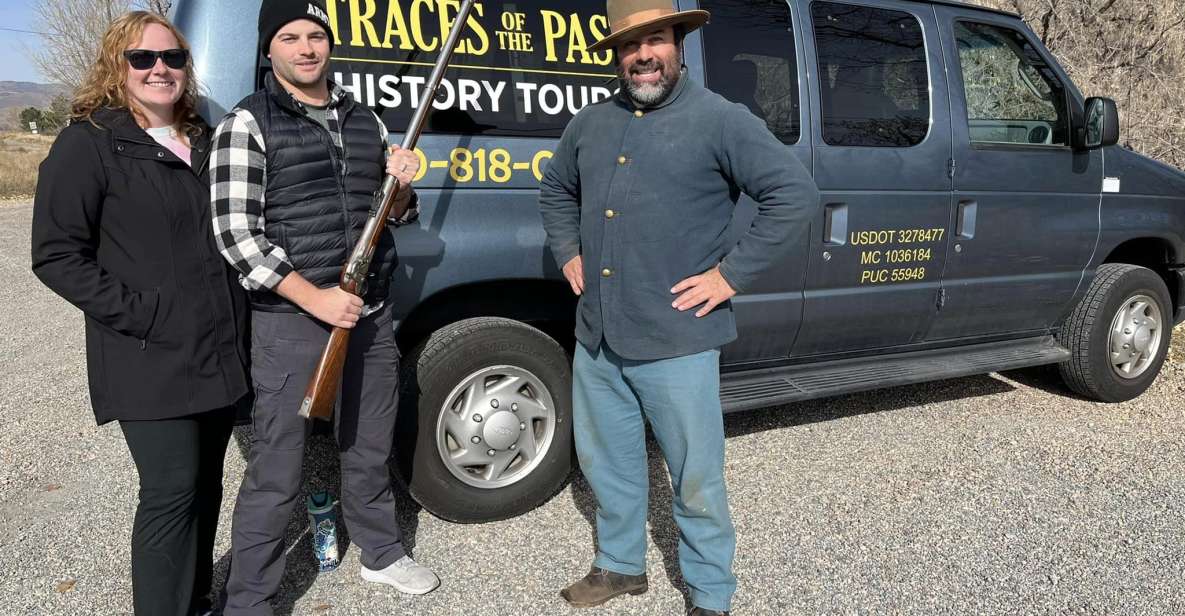
Hardships and resilience defined life on the frontier for the soldiers stationed at Camp Collins, as they contended with the harsh realities of the remote outpost and the ever-present threat of conflict with Native American tribes.
Temperatures could plummet to bone-chilling lows in the winter, while summer brought searing heat and relentless dust storms. Supplies and fresh food were limited, forcing the soldiers to adapt their diets and rely on the land for sustenance.
Despite these challenges, the men of Camp Collins maintained a strong sense of camaraderie and purpose, ready to defend their post and the nearby settlers from any potential threats. Their daily lives were a testament to the fortitude required to survive on the untamed American frontier.
Westward Migration Movement
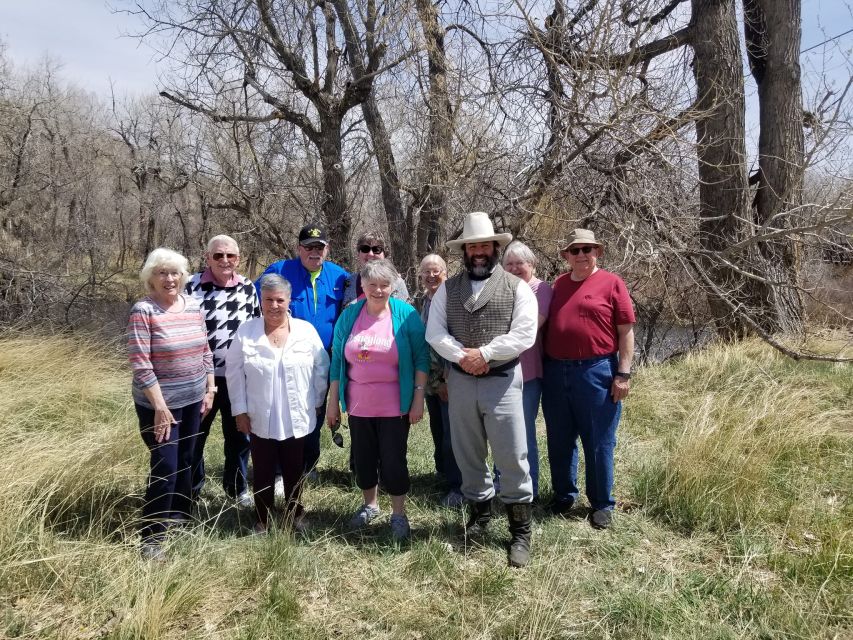
Propelled by the promise of new opportunities and better land, settlers flooded westward during the mid-nineteenth century, transforming the American frontier.
Camp Collins, a remote military outpost, played a crucial role in this westward migration movement, providing security and support for the influx of pioneers seeking to carve out new lives in the untamed western territories.
The camp’s strategic location along the Cache la Poudre River allowed it to serve as a hub for travelers, offering shelter, supplies, and protection from potential Native American conflicts.
Historic Artifacts on Display
On the tour, visitors can hold and view historic artifacts from the mid-nineteenth century, offering a tangible connection to the trials and triumphs of life on the frontier during the westward migration movement.
These rare items, carefully preserved and presented, transport guests back in time. They’ll handle old tools, clothing, and other personal effects that were used by the early settlers and soldiers stationed at Camp Collins.
Handling these artifacts brings the past to life, allowing visitors to better understand the daily challenges faced by those who carved out a new future in the American West. This unique opportunity to interact with history makes the tour a truly immersive experience.
More Great Tours NearbyNature Along the River
The serene beauty of the Cache la Poudre River captivates visitors as they stroll through the Gustav Swanson Natural Area, taking in the tranquil sights and sounds of nature along the tour’s route.
This peaceful oasis offers a chance to:
- Spot local wildlife, including deer, birds, and the occasional beaver making its home along the riverbanks.
- Admire the lush greenery and towering cottonwood trees that line the river’s edge, creating a shaded, calming atmosphere.
- Listen to the gentle flow of the water as it winds its way through the valley, providing a soothing soundtrack to the tour.
This natural respite allows visitors to momentarily escape the bustle of modern life and enjoy the timeless beauty of the American West.
Significance of Camp Collins
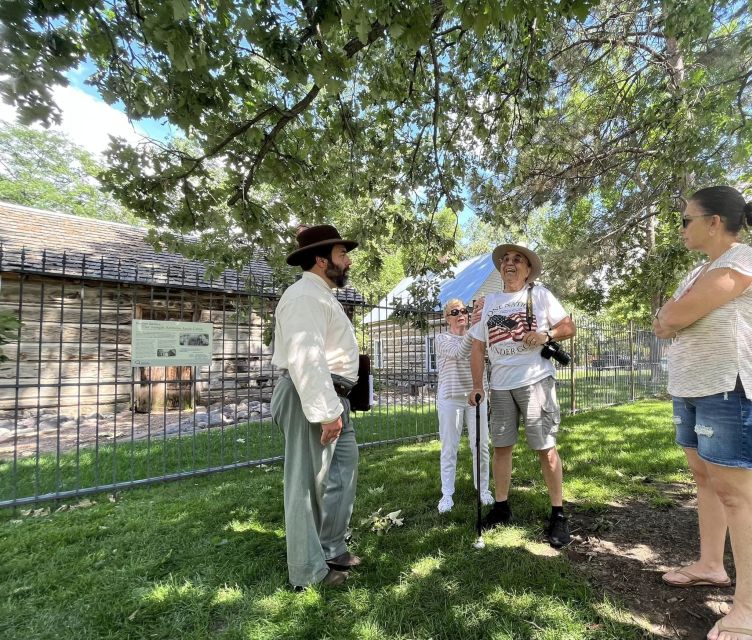
Camp Collins played a pivotal role in the history of the American West, serving as a vital military outpost during a tumultuous period of westward expansion and conflict with Native American tribes.
Established in 1862 to protect settlers and travelers along the Overland Trail, the camp’s strategic location on the Cache la Poudre River allowed it to monitor and respond to any potential threats from indigenous populations.
The camp’s presence also facilitated the growth of the surrounding area, which eventually led to the founding of the city of Fort Collins.
Today, the site of Camp Collins is an important historical landmark that offers visitors a glimpse into the military’s role in shaping the American frontier.
Guided Tour of Laporte
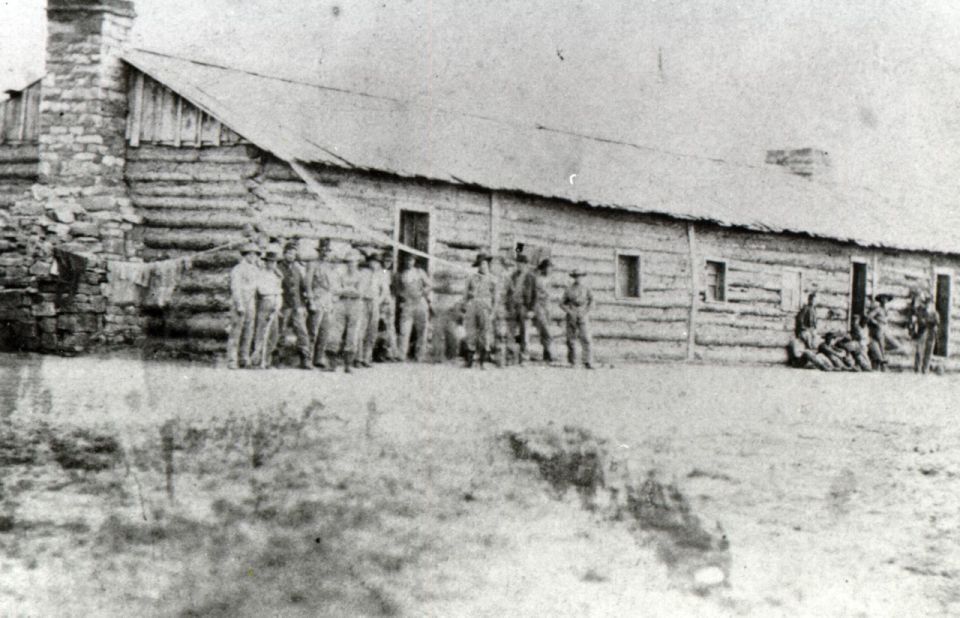
Amidst the tour’s exploration of the military history, participants make a stop at the Laporte Presbyterian Church, where a guided tour delves into the community’s early religious and social foundations.
The guide shares captivating stories of the church’s humble beginnings in the 1860s, when pioneers gathered in a one-room schoolhouse before constructing the iconic limestone building.
Visitors have the opportunity to:
- Step inside the quaint sanctuary and admire the intricate woodwork and stained-glass windows that have withstood the test of time.
- Learn about the church’s role as a hub for community gatherings and the impact it had on shaping Laporte’s identity in the frontier days.
- Imagine the lives of the early congregants and the challenges they faced in establishing a place of worship in this rugged, remote landscape.
Arrival and Departure Details
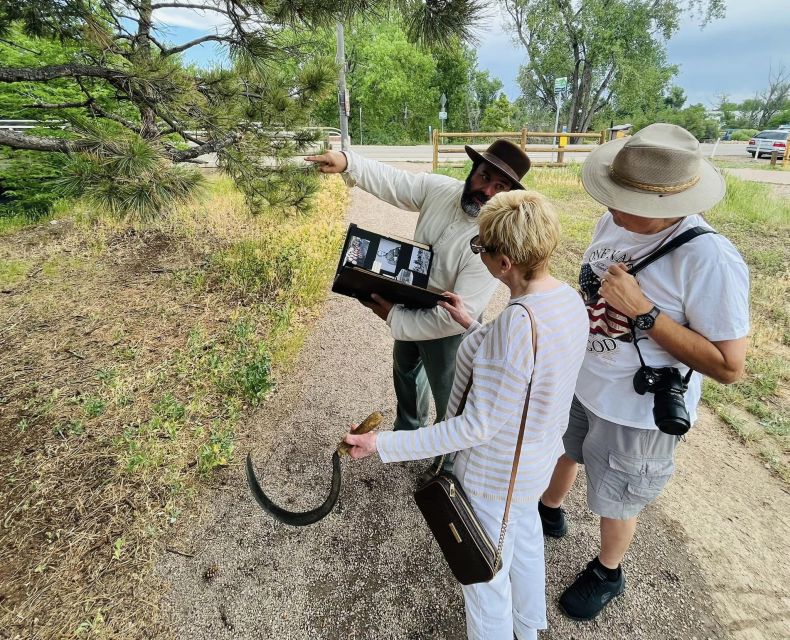
After exploring the rich history of the Laporte Presbyterian Church, the tour arrives at the starting point – a parking lot next to the entrance to Watson Lake State Wildlife Area, approximately 1 mile west of Verns Place on Rist Canyon Rd.
This convenient location, with its proximity to the Cache la Poudre River, sets the stage for the remainder of the insightful military-focused tour.
Over the next 25 minutes, the knowledgeable guide leads the small group through the historic 4900 Rist Canyon Rd, sharing tales of Army life on the frontier and the significance of the remote outpost of Camp Collins.
As the tour concludes, guests return to the starting point, having gained a deeper appreciation for the military’s role in the early American West.
Frequently Asked Questions
What Is the Maximum Group Size for the Tour?
The tour has a small group size, limited to 8 participants. This ensures an intimate and personalized experience for travelers during the 2-hour guided tour through the historic sites in the area.
Is the Tour Offered in Languages Other Than English?
The tour is offered in English only. The tour description states that it includes a "Live tour guide" and highlights that the tour is conducted in "English", indicating no other language options are available.
Can the Tour Be Customized for Private Groups?
The tour can be customized for private groups. The operator offers flexibility to accommodate special requests, such as adjusting the itinerary or group size, to provide a personalized experience for private tours.
Is There an Option to Extend the Tour Duration?
Yes, the tour duration can be extended. The tour operator offers the flexibility to customize the tour length for private groups upon request, allowing you to spend more time exploring the area’s history and natural wonders.
Are There Any Discounts Available for Seniors or Students?
The tour operator offers discounts for seniors and students. Seniors can save 10% off the tour price, while students with a valid ID can receive a 5% discount. These discounts must be requested at the time of booking.
Recap
Visitors to Fort Collins can explore the city’s rich military history and the challenges of frontier life. The tour provides a chance to learn about the strategic role of Camp Collins and the experiences of pioneers who traveled through the region.
Guests can also enjoy the natural beauty of the Cache la Poudre River, creating a well-rounded appreciation for this historic destination.
You can check availability for your dates here:More Tours in Fort Collins
More Tour Reviews in Fort Collins
Not for you? Here's more nearby things to do in Fort Collins we have reviewed
- Experience Fort Collins by E Bike Guided Tour
- Taco Tuesday
- In the Footsteps of the Explorers, Fort Collins Walking Tour
- Gamified Walking Tour of Colorado State University!
- Five Breweries in Three Hours Bus Tour
- Fort Collins Guided Libations Experience Tour
- Fort Collins Puzzling Adventure
- The Dinner Detective Murder Mystery Show – Fort Collins, CO
- Fort Collins Ghost Tour
- Wine Tasting Experience With Charcuterie in Fort Collins
- Scavenger Hunt in Fort Collins by Crazy Dash
- Fort Collins Crusade Scavenger Hunt Review
